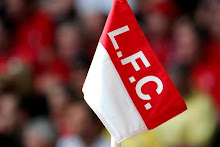
In recent times the UK film scene has been 'blessed' with a vast array of football-related films.
The screen adaptation of Nick Hornby's Fever Pitch enticed the masses during the hedonistic Britpop days of the mid nineties, aided in part by the national hysteria whipped up by England's exploits in Euro '96. That was followed in 2001 by Mike Bassett: England Manager. Several years later, violence was the order of the day when John King's The Football Factory was brought to cinematic life by Nick Love - the heir apparent to Guy Ritchie's throne as the leading Cockney director.

Continuing in the theme of terrace disorder is the screen adaptation of Kevin Sampson's gritty and culturally reflective novel Awaydays. The billing on the front cover describes it as being 'like Catcher in the Rye with Stanley knives' but, having read the book cover-to-cover, it's the Scouse alvernative to A Clockwork Orange.
The film centres around the life and times of Paul Carty, a middle class Birkenhead youngster in 1979 who yearns to be part of the kudos that comes with being a member of Tranmere Rovers' firm The Pack. His ambition is fulfilled when he meets Elvis, a impulsive art student who offers him a route into the firm.
In short, this is a film about sex, punk and adidas Samba. It focuses on the casual culture that emerged from Merseyside in the late 1970s; a craving for football violence, foreign jaunts and picking up a pair of Adi Dassler's finest in between.
Unfortunately the film is an anti-climax to the best-selling novel. The graphic nature of the book is what made it a best seller and Sampson, on board as an executive producer, stuck closely to the storyline - something other screen adaptations have failed to do.
But there was just something about Awaydays that didn't quite feel right. The actors have been touted as some of the best upcoming ones in the country and they lived up to their billing. However the film, for all the gratuitous violence and sexual content, had a watered down feel to it. The friendship between Carty and Elvis was, as in the novel, the focal point as was a punk-orientated soundtrack. The problem with penning a best-selling novel is that readers' imaginations will overshadow the version on the big screen. Credit has to be given to Sampson and his team for making this a crediblefilm off their own back but, as I was told repeatedly by people after seeing The Football Factory, the book's better.
FLIM09 rating: 8/10

